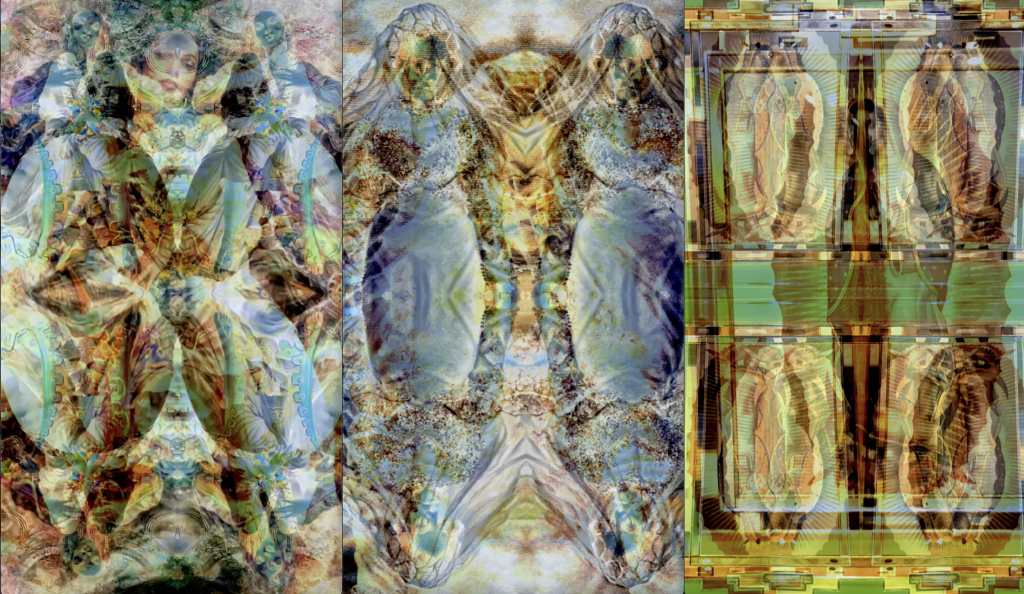Emma Velez (Gender and Women’s Studies) is a 2022–2023 HRI Campus Faculty Fellow. Velez’s manuscript, “Orienting Historias: Unraveling the Coloniality of Gender through Las Tres Madres,” shows how the processes of colonization shifted, embodied, and emplaced orientations to social life through the imposition of the categorial logics of race, gender, and sexuality.
Learn more about HRI’s Campus Fellowship Program, which supports a cohort of faculty and graduate students through a year of dedicated research and writing in a collaborative, interdisciplinary environment.
What is unique about your research on this topic?
My book, Orienting Historias, utilizes the framework of decolonial feminisms to engage with three prominent figures from the Latinx social imaginary, sometimes called Las Tres Madres: La Llorona, La Malinche, and La Virgen de Guadalupe. For more than five hundred years, Las Tres Madres’ historias continue to persist and be passed on; continually reshaped and retold in a thousand ways across generations and contexts. My book invites readers to reimagine their relevance for addressing contemporary social justice issues such as gender-based violence, migration fueled by climate catastrophe, and ongoing forms of colonialism. One of the most unique and exciting parts of this project are my original retellings of Las Tres Madres which are guided by lessons for re-examining our inherited colonial orientations to power, race, sexuality, and gender that I locate in their historias. My retellings, in forms such as poetry and digital image collages, explore Las Tres Madres as orienting historias for a decolonial Latinx feminism that reveal possibilities for unraveling settler-coloniality and weaving worlds to hold decolonial feminist futures.

What drives your interest in this research?
My interests in this research are rooted in my own lived experience as a Chicana feminist scholar. The stories of Las Tres Madres have been formative for my sense of self both as a Chicana and a feminist. During my training in the field of Philosophy, I did not often see myself or my communities represented in Western philosophical reflections on identity, epistemology, or justice. Centering their historias and developing my own conceptual tools like orienting historias helps me to name and explain the philosophical significance of Las Tres Madres, as well as affirm that it is possible to do philosophy in ways that are rooted in and accountable to one’s communities.
How has the fellowship seminar impacted the way you approach your research?
While we all came from various disciplinary backgrounds and departments across campus, it’s been powerful to be a part of this cohort of HRI fellows, committed to the work of un/doing. Sharing space in the fellows seminar over the last year has been deeply inspiring and has given me the courage to experiment with new modes of un/doing in my research projects. And, perhaps most importantly, the seminar enabled me to cultivate relationships that I know will extend beyond the fellowship period.
